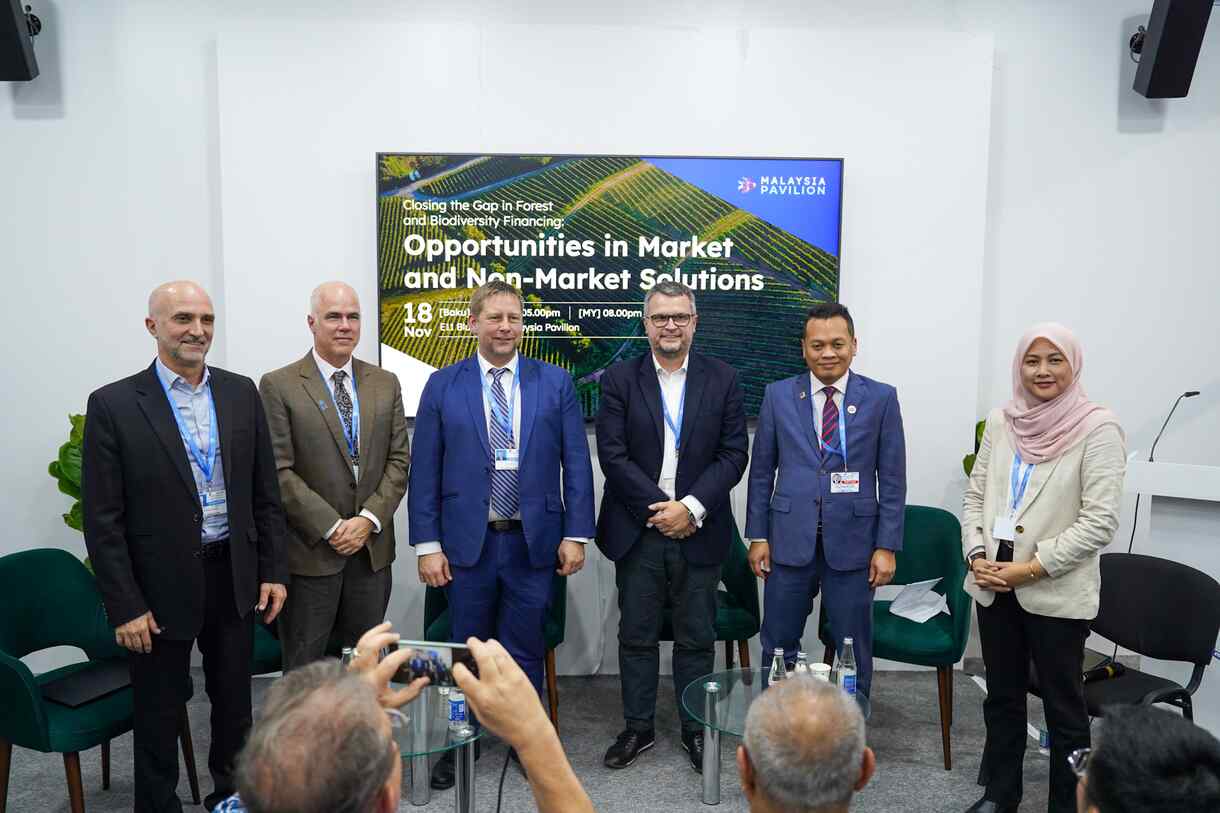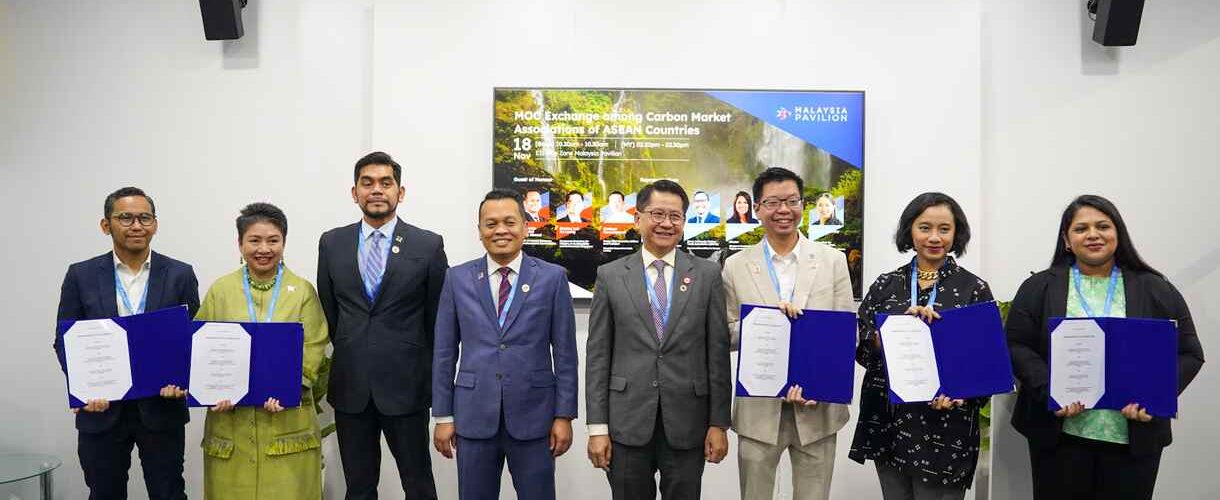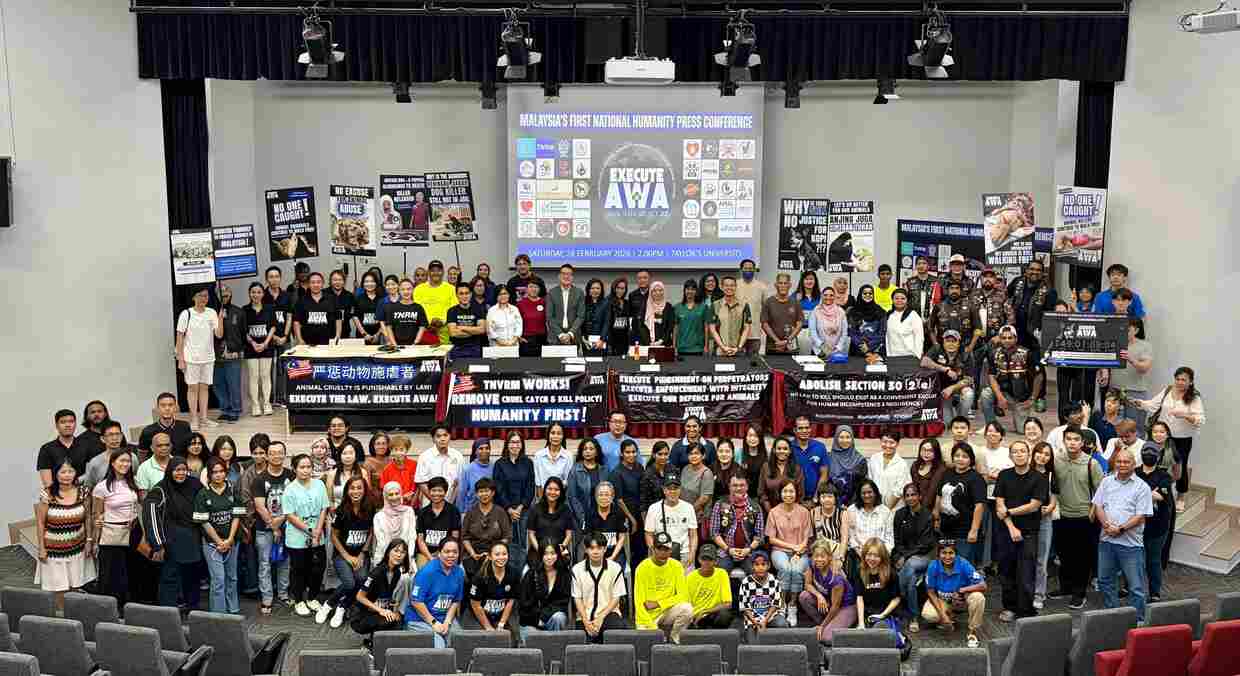Malaysia has taken a pivotal step in climate action through the signing of a Memorandum of Cooperation (MOC) with carbon market associations from nine ASEAN nations. This historic collaboration aims to establish the ASEAN Common Carbon Framework (ACCF), streamlining carbon market mechanisms across the region.
The agreement is expected to bolster the ASEAN bloc’s carbon trading efficiency, accelerate green finance transitions, and ensure global competitiveness. With ASEAN’s population exceeding 600 million and its combined Gross Domestic Product (GDP) reaching USD 3.8 trillion in 2023, the unified carbon framework is poised to unlock the bloc’s potential as a leader in green initiatives.

“This collaboration reflects Malaysia’s growing recognition of the urgency to address climate change,” said YB Nik Nazmi Nik Ahmad, Minister of Natural Resources and Environmental Sustainability. “The ACCF aspires to unlock carbon project opportunities unique to the ASEAN region, fostering regional cooperation and accelerating low-carbon investments.”
Malaysia Prepares for ASEAN Chairmanship 2025
As Malaysia gears up for its ASEAN Chairmanship in 2025, the MOC complements the nation’s commitment to reduce carbon emissions by 45% (compared to 2005 levels) by 2030. The agreement aligns with global climate goals, particularly the breakthrough consensus achieved at COP29 on standards for international carbon markets under Article 6.4 of the Paris Agreement.
The Malaysia Pavilion at COP29, spearheaded by the Ministry of Natural Resources and Environmental Sustainability (NRES) and supported by leading corporations such as Tenaga Nasional Berhad (TNB) and PETRONAS, underscores Malaysia’s dedication to green initiatives.
“With interoperable carbon markets, we can build an integrated and credible ecosystem that supports ASEAN’s green finance goals,” added Nik Nazmi.

Unlocking ASEAN’s Green Potential
The ACCF sets the stage for ASEAN to send stronger demand signals globally while fostering an efficient and transparent carbon market. By aligning standards and trading mechanisms, the framework enables Malaysia and its ASEAN partners to capture the full value of regional green value chains, ensuring a cohesive carbon ecosystem.
Looking ahead, Malaysia’s role as the “Epicentrum of Growth” in ASEAN reflects its vision to lead climate action, enhance liquidity in carbon markets, and support individual Nationally Determined Contributions (NDCs). This collaboration not only cements Malaysia’s leadership but also strengthens ASEAN’s position as a global green economy powerhouse.
For more details on Malaysia’s initiatives at COP29, visit Malaysia Pavilion.











